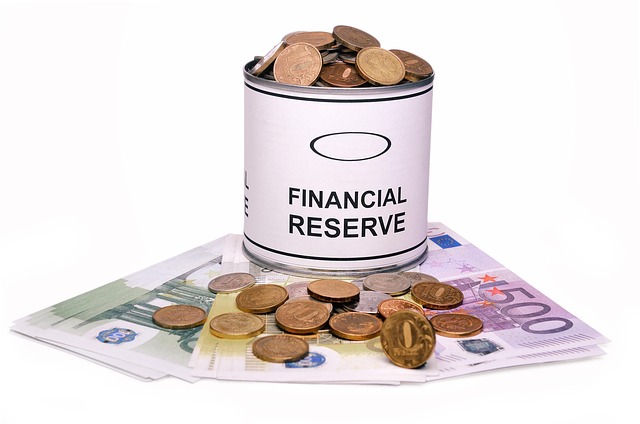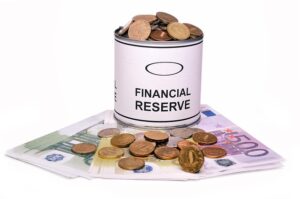Investing in Yourself: The Best Return on Investment
In a world that constantly urges us to seek external wealth and material successes, the most profound investment one can make is, ironically, an investment in oneself. Investing in yourself encompasses enhancing your skills, expanding your knowledge, and nurturing your mental, physical, and emotional well-being. As the saying goes, “The best investment you can make is in yourself.” This article delves into what it means to invest in yourself, the various avenues through which you can do so, and how this approach yields the greatest returns of all.
Understanding the Concept of Self-Investment
Self-investment is a multifaceted concept that integrates various domains of personal and professional development. It includes education, skill development, emotional intelligence, physical health, and even the cultivation of relationships. Each of these elements plays a crucial role in shaping who you are and determining your long-term success and happiness. Instead of merely accumulating external validations or financial gains, investing in oneself fosters growth from within, resulting in a more robust foundation to navigate life’s challenges.
The Value of Lifelong Learning
One of the key areas of self-investment is education. Learning should not stop at a certain age or point of career; it should be a lifelong pursuit. Whether through formal schooling, online courses, or self-directed study, acquiring new skills can significantly enhance your employability and adaptability in the ever-evolving job market.
With the advent of technology, the avenues for learning have expanded manifold. Platforms like Coursera, Udemy, and Khan Academy offer a plethora of courses on diverse topics, often at little to no cost. By taking advantage of these resources, you can stay relevant, improve your qualifications, and explore new interests and hobbies.
Developing New Skills
In addition to educational pursuits, practical skill development is critical when investing in yourself. Whether it’s honing communication skills, mastering a new programming language, or learning a musical instrument, each skill you acquire adds to your personal and professional toolkit.
Consider the ability to communicate effectively. This skill enhances both personal relationships and professional collaborations. Similarly, technical skills, such as data analysis or digital marketing, can open doors to new opportunities and career advancements. Investing time and effort into skill development can yield significant returns, often translating to higher income potential and job security.
Nurturing Emotional Intelligence
Emotional intelligence (EQ) is another vital area in which to invest. It involves recognizing, understanding, and managing our own emotions as well as empathizing with others. Developing emotional intelligence can lead to improved relationships, enhanced leadership capabilities, and greater overall satisfaction in life.
Workshops, reading books, and engaging in reflective practices such as journaling or mindfulness can all contribute to boosting your emotional intelligence. When you invest in your emotional well-being, you also enhance your ability to cope with stress and navigate challenges with grace and resilience.
Prioritizing Physical Health
Investing in yourself also encompasses your physical health. Regular exercise, a balanced diet, and sufficient sleep are foundational pillars that support overall well-being. Physical health directly influences mental clarity, emotional stability, and energy levels—all of which play crucial roles in personal and professional effectiveness.
Consider incorporating activities that promote physical health into your routine. This could be as simple as going for a daily walk, joining a fitness class, or learning about nutrition. By prioritizing your health, you not only improve your quality of life but also become better equipped to chase your dreams.
Building Meaningful Relationships
Another profound yet often overlooked aspect of self-investment is the cultivation of relationships. Human connections are integral to happiness and success. Fostering meaningful relationships can provide emotional support, open up new opportunities, and enhance your life experience.
Investing time in family, friends, mentors, and even professional networks can yield significant dividends. Attend networking events, engage in community activities, or simply spend quality time with loved ones. The richer your relationships, the more substantial your personal and professional life will become.
The Financial Aspect of Self-Investment
Many people often equate investment with financial gain. While it’s crucial to manage finances wisely, investing in yourself can also lead to tangible financial returns. Better skills and education often lead to better job opportunities, promotions, and salary increases, ultimately contributing to your financial stability.
Consider the expenses associated with self-investment as an investment opportunity itself. Whether you allocate funds for workshops, courses, or even books, the knowledge and skills you gain can provide a substantial return in the long run.
Recognizing the Importance of Time
Investing in yourself requires time—a resource that is finite. It’s essential to prioritize this investment in your daily life. Creating a structured plan for personal development can help ensure that you allocate time to self-improvement amidst the demands of everyday pressures.
Start small. Dedicate a few hours each week to reading, online courses, or health activities. The key is consistency. Over time, these small increments create significant change and growth, leading to remarkable transformations in your life.
Overcoming Barriers to Self-Investment
Despite knowing the benefits of investing in oneself, many encounter barriers that hinder progress. Common obstacles include financial limitations, lack of time, and self-doubt. Recognizing these barriers is the first step in transcending them.
For those facing financial constraints, explore free resources, scholarships, or employer-sponsored programs. If time is a concern, evaluate your daily schedule and identify pockets where you can squeeze in self-investment activities. Additionally, combatting self-doubt requires a mindset shift—remind yourself that everyone is on their unique journey and that it’s never too late to start.
The Long-Term Benefits of Investing in Yourself
The benefits derived from investing in yourself are not immediate; they manifest over time. This long-term perspective often makes such investments worthwhile. As you gain skills, knowledge, and emotional resilience, you begin to notice changes in various aspects of your life—from career advancement to improved relationships and overall health.
Moreover, the inner confidence developed from self-investment can spill over into every facet of life, empowering you to take risks, pursue passion projects, and navigate life’s challenges with newfound tenacity. This cumulative effect often leads to a more fulfilled and meaningful life.
Conclusion: A Continuous Journey
Investing in yourself is a lifelong commitment that pays unparalleled returns. It ensures that you remain competitive in the workforce, enriched in relationships, and joyful in personal growth. As you embark on this journey of self-investment, remember that every small action contributes to a brighter, more promising future. The road may not always be smooth, but the rewards—both tangible and intangible—are indeed worthwhile. Embrace the process of becoming your best self, and relish the journey of continuous growth and discovery.





